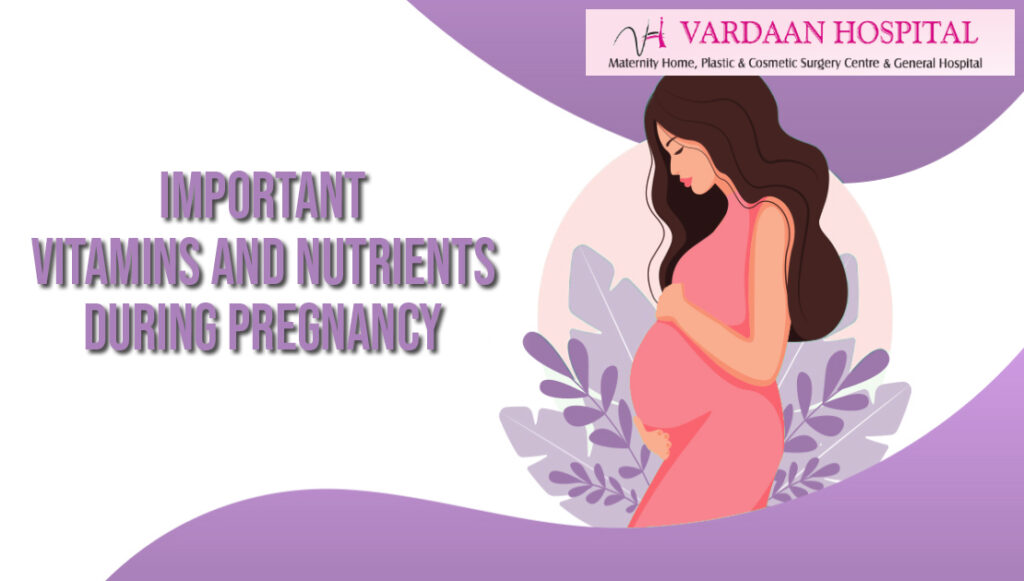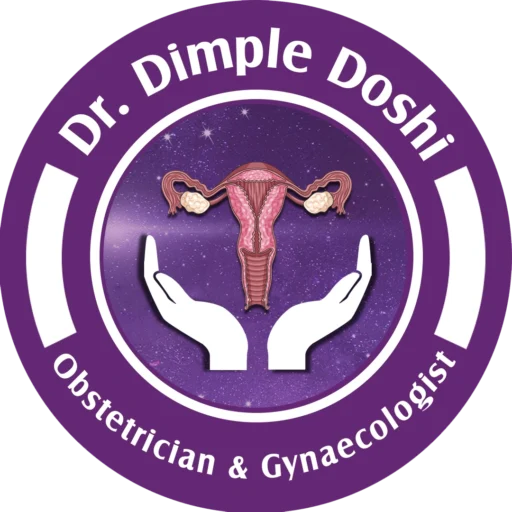
Important Vitamins and Nutrients During Pregnancy
Introduction
Our body needs constant supply of energy in the form of food to function. In food many nutrients and vitamins play their individual role in helping our body in performing its functions. Pregnancy is a time period where you not only need to ensure that you get the needed nutrients and vitamins but also your baby in your womb. Here in this article we will discuss about important nutrients and vitamins you need to take during your pregnancy period to ensure optimal growth and development of your baby.
1. Folic acid or folate

Folate falls in the B class of vitamins and is known as B9. When it is added in foods in synthetic form it is called as folic acid. The importance of folate is that it stops the emergence of adverse brain and neural problem such as spinal bifida (neural tube defect).It has also demonstrated to reduce the chances of pre-term birth and pre-mature baby. The dose of folate ranges from 400mcg before pregnancy to upto 1mg per day during your pregnancy period. Good sources of folate include Citrus fruits, dried peas, fortified cereals, eggs, dark green leafy vegetables etc.
2. Calcium

Calcium plays a salient role in the development of strong teeth and bones. The dose is about 1000 mg in a day during pregnancy and you can also divide it into two doses of 500 mg.Good sources of calcium include milk, cheese, yogurt, broccoli, kale, calcium fortified orange juice (check label) etc.A word of caution for you that if you don’t get enough calcium through your diet then your body will pull calcium from your bones and transfer it to your baby which makes you at risk of osteoporosis in the future.
3. Protein

Protein is valued for its role in the development of your baby’s tissues, organs and brain. It also helps to enhance the blood supply to your baby. The quantity of protein you require depends on your weight as well as which trimester you are currently in. The ideal amount is about 70 grams to 100 grams per day. Good sources of protein include pulses, cottage cheese, peas, milk, peanut butter eggs, lean meat, fish etc.
4. Iron

Iron plays a salient role in transportation of oxygen to your cells and organs as it forms the central metal ion in hemoglobin which is present in your red blood cells. Lack of iron in your diet causes aneamia where less oxygen is transported to your cells thus leading to fatigue and tiredness. In more severe cases post partum depression, low birth baby and pre-term delivery can also occur. Dosage recommendation is 27 mg per day. Good sources of iron are iron fortified cereals, green leafy vegetables, sprouts beans, lean meat, poultry, fish etc.
5. Vitamin D
Vitamin D aids in the absorption of calcium while also supporting your body’s nerves, immune system and muscles to function properly. Ideal dose is about 600 IU which you can gain easily from sunlight, milk, mushrooms, eggs, certain fish and Vitamin D fortifies juices (check label).
6. Vitamin C

Vitamin C aids in tissue repair, synthesis of collagen, boosting immunity and to absorb iron. Lack if Vitamin C can cause scurvy, bleeding gums and preeclampsia. Dosage is 85 mg daily. Good sources of Vitamin C include citrus fruits, red bell pepper, kiwi, broccoli, grapefruit etc.
7. Docosahexanoic acid (DHA)

DHA is an omega-3 fatty acid which is critical in development of eyes and brain of your baby. It is found mainly in oily fishes such as salmon, tuna, trout, mussels, oysters; pickled herring etc.Dosage is 200mg daily. If you are vegetarian then you can try supplements in the form of soft gel capsules.
8. Iodine

Iodine is an inevitable nutrient that is needed in order to make thyroid hormones T3 and T4. It helps in development of nervous system of your baby such as nerves, brain and spinal cord. Thyroid hormones also control your metabolism and lack of deficiency can cause hypothyroidism. Dosage is 220 mcg per day. You can get iodine from table salt (fortified), fish, eggs, cheese, yoghurt, milk, cereals (fortified).
Dr Dimple Doshi-An Expert Gynecologist
Dr Dimple Doshi is an expert lady gynecologist in Mumbai who has about 20+years of experience practicing as a gynecologist and obstetrician.
